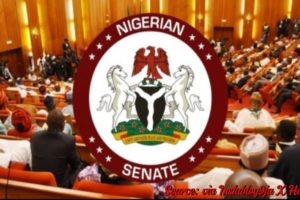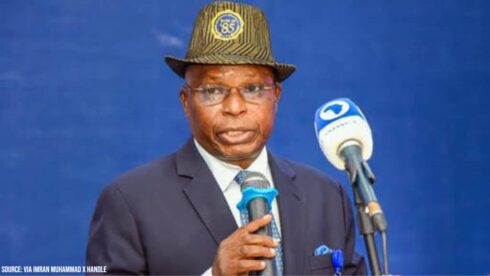Yusuf Fagbemi, the Attorney General of the Federation (AGF), has affirmed that governors lack the constitutional authority to suspend or remove local government chairpersons. Speaking during a media briefing, Yusuf Fagbemi addressed concerns about recent political developments in Edo State, where the governor, through the State Assembly, suspended local government leaders. He stressed that such actions violate constitutional provisions safeguarding the independence of local councils and the integrity of grassroots democracy.
Yusuf Fagbemi further highlighted that local government chairpersons are democratically elected officials whose positions are protected under Section 7 of the 1999 Constitution of Nigeria. He warned that any attempt to undermine their tenure through arbitrary suspensions or dismissals not only breaches the law but also weakens the autonomy of local governance. The AGF emphasized the importance of upholding constitutional principles to ensure accountability and preserve the trust of citizens in democratic institutions.
Edo Governor’s Suspension of LG Chairpersons Sparks Debate
The AGF Yusuf Fagbemi’s remarks were a direct response to the controversy surrounding the Edo State governor’s decision to suspend local government chairpersons through the State Assembly. This action has raised questions about the legality of state interference in local government administration.
Yusuf Fagbemi condemned the move, stating it was an overreach of executive power. Legal and political observers have described the governor’s actions as a potential violation of constitutional principles designed to safeguard local governance autonomy.
Yusuf Fagbemi Cites Constitutional Protections for Local Governments
Yusuf Fagbemi referenced Section 7 of the 1999 Constitution, which guarantees the independence of local government councils. He explained that the constitution provides a clear framework for the removal or discipline of local government chairpersons, which does not include arbitrary suspension by state governors.
The AGF, Yusuf Fagbemi further noted that any disciplinary action against a local government chairman must follow judicial processes or impeachment procedures, emphasizing that state assemblies and governors lack the unilateral power to take such decisions.
Implications of the AGF Yusuf Fagbemi’s Statement for Democratic Governance
AGF Yusuf Fagbemi’s clarification has drawn attention to the broader implications for Nigeria’s democratic framework. He warned that unchecked interference in local government operations could weaken public trust in democratic institutions and disrupt service delivery at the grassroots level.
The statement has also reignited discussions about the need to protect local councils from political manipulation. Experts and civil society organizations are urging the federal government to strengthen legal protections for local governments to enhance accountability and governance at the community level.
Legal Experts Applaud Yusuf Fagbemi’s Stance
The legal community has commended Yusuf Fagbemi for his decisive intervention, describing it as a necessary step to uphold the rule of law. Constitutional lawyer Dr. Ahmed Bello praised the AGF for reinforcing the independence of local governments, calling it a vital component of Nigeria’s federal structure.
However, some experts argue that ambiguities in the constitution leave room for interpretation, which state governors often exploit. They are advocating for constitutional amendments to clearly define the limits of state authority over local government operations.
Stakeholders Advocate for Collaboration Between State and Local Governments
Amid the ongoing controversy, stakeholders have emphasized the need for strengthened cooperation between state and local governments to safeguard Nigeria’s democratic values. Attorney General of the Federation (AGF) Yusuf Fagbemi has urged state governors to uphold the constitutional autonomy of local councils, advocating for constructive dialogue as a means to resolve conflicts. He stressed that fostering collaboration will not only promote harmony but also ensure effective governance at all levels.
Civil society organizations have echoed Fagbemi’s call, emphasizing the importance of legislative and judicial oversight to prevent the abuse of power by state executives. These groups are advocating for reforms that reinforce the independence of local governments and enhance accountability mechanisms. By addressing these systemic issues, stakeholders believe Nigeria can strengthen its democratic institutions and create a governance framework rooted in transparency, equity, and mutual respect.
Table of Contents
Discover more from OGM News NG
Subscribe to get the latest posts sent to your email.














